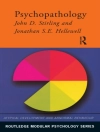Organized around extended case illustrations—and grounded in cutting-edge theory and research—this highly regarded book shows how an attachment perspective can inform psychotherapeutic practice with patients of all ages. Karl Heinz Brisch explores the links between early experiences of separation, loss, and trauma and a range of psychological, behavioral, and psychosomatic problems. He demonstrates the basic techniques of attachment-based assessment and intervention, emphasizing the healing power of the therapeutic relationship. With a primary focus on treating infants and young children and their caregivers, the book discusses applications of attachment-based psychotherapy over the entire life course.
New to This Edition
*Incorporates advances in research on neurobiology, genetics, and psychotraumatology.
*Expanded with a section on inpatient treatment for traumatized children, including in-depth cases.
*Describes two promising prevention programs for expectant couples, families, and young children.
*The latest knowledge on disorganized attachment, attachment disorders, and assessments.
Содержание
Foreword, Lotte Köhler
Introduction
I. Attachment Theory and Its Basic Concepts
II. Attachment Disorders
III. Attachment-Based Psychotherapy
IV. Treatment Cases from Clinical Practice
V. Treatment of Early Childhood Developmental Disorders in an Inpatient Intensive Psychotherapy Unit: A New Model of Treatment
VI. Prospects for Further Application
Afterword, Inge Bretherton
Appendix: Brief Précis of the Adult Attachment Interview Protocol
Об авторе
Karl Heinz Brisch, MD, is a child and adolescent psychiatrist and psychotherapist, as well as an adult psychiatrist and neurologist and a specialist in psychosomatic medicine; a training psychoanalyst at the Psychoanalytic Institute in Stuttgart, Germany; and head of the Department of Pediatric Psychosomatic Medicine and Psychotherapy at the Dr. von Hauner Children’s Hospital at the Ludwig-Maximilians-University of Munich, Germany. Dr. Brisch’s primary research is on the development of infants and children with high-risk conditions and the development of attachment and its disorders. He has led longitudinal research projects on attachment disturbances and early psychotherapeutic interventions. He is a member of the World Association for Infant Mental Health and of the Society for Research in Child Development, and is president of the German branch of the German-Speaking Association for Infant Mental Health. His website is www.khbrisch.de/en.












